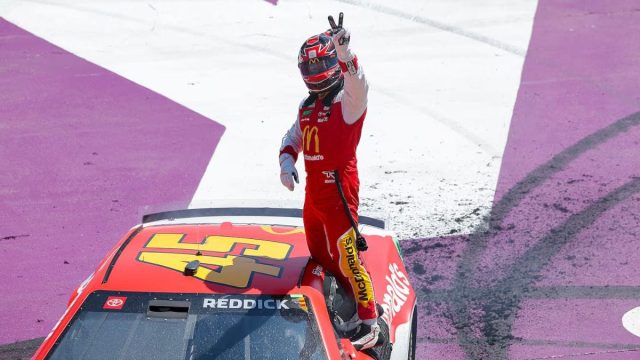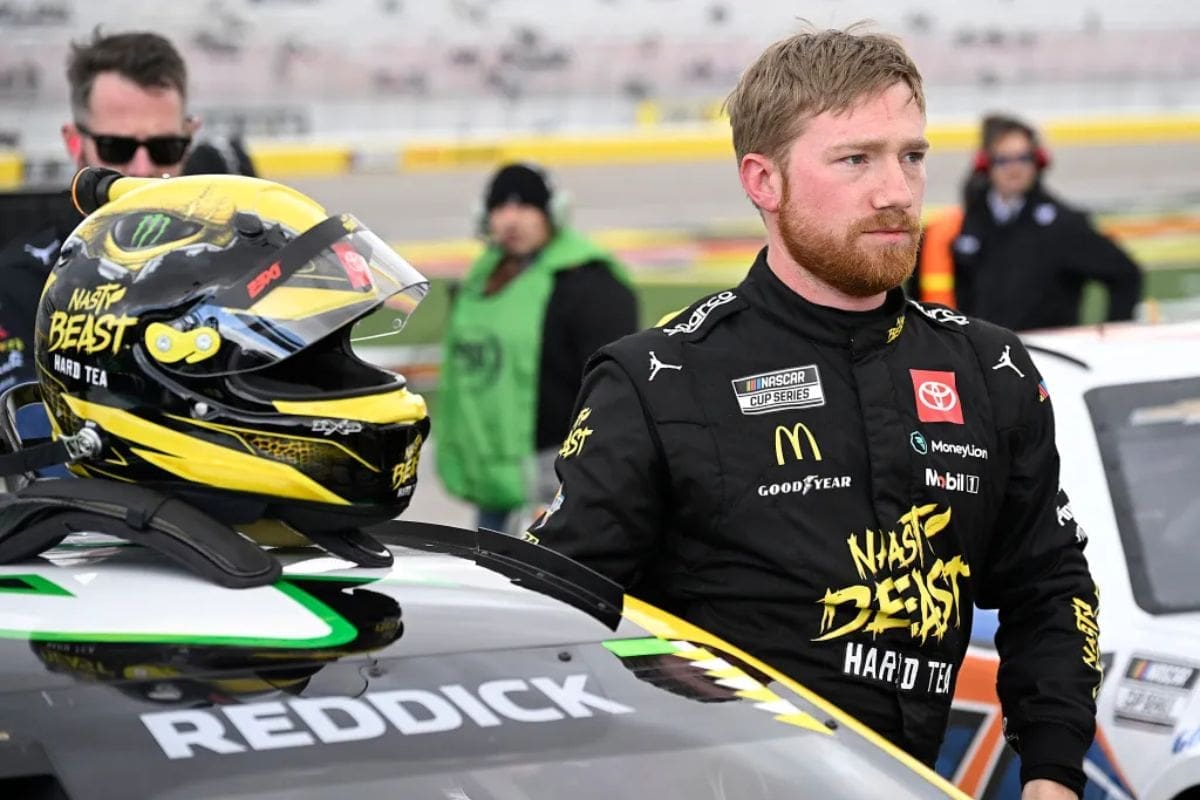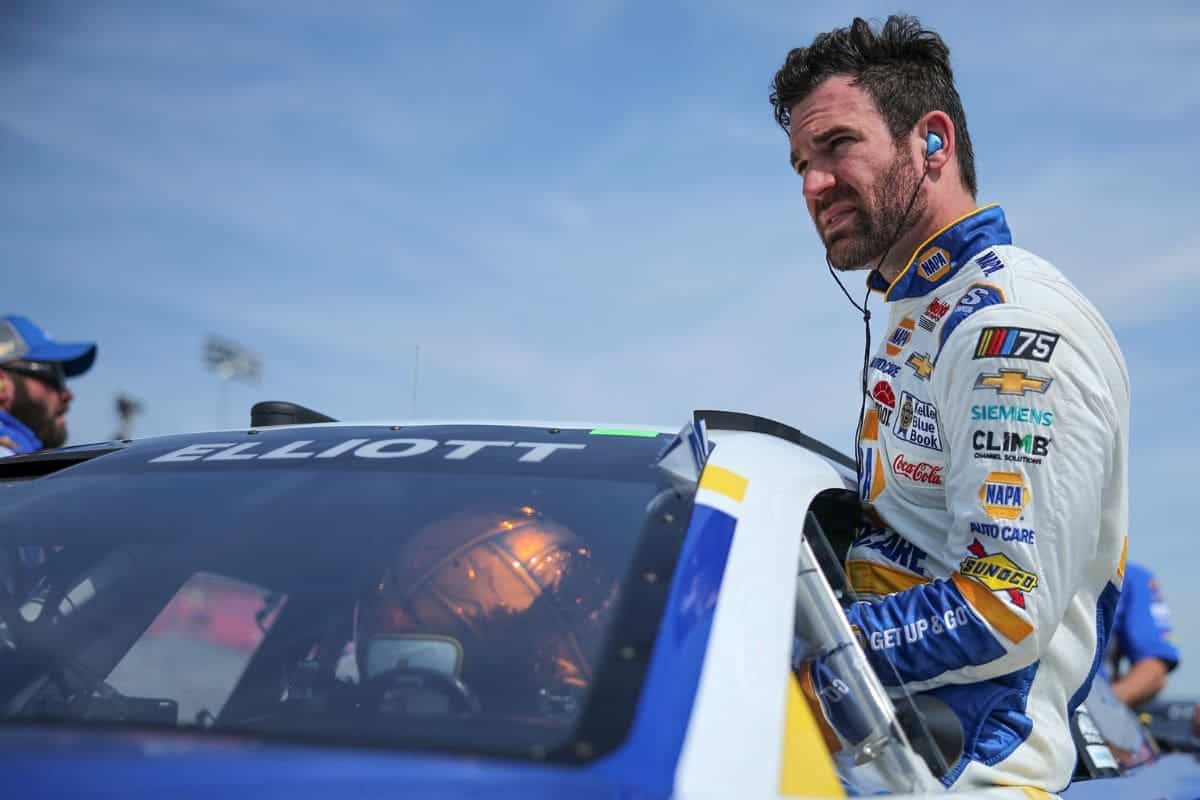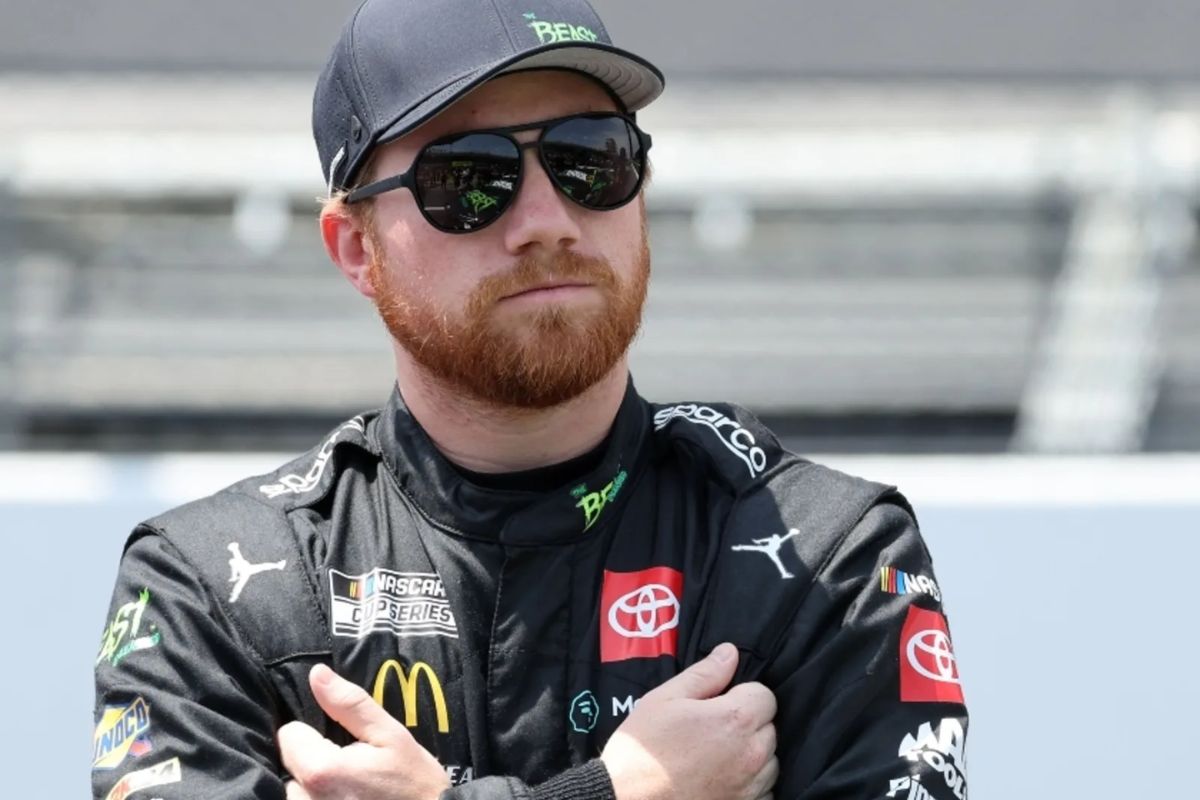Tyler Reddicks Heartfelt Win at Michigan: Tyler Reddick‘s recent victory at the FireKeepers Casino 400 stands as a powerful indication of the enduring influence of mentorship in motorsports, particularly in the wake of the passing of his mentor, Scott Bloomquist. Reddick’s performance, characterized by a blend of skill and emotional fortitude, not only commemorates Bloomquist’s legacy but also raises questions about the role of mentorship in shaping competitive identities. As we reflect on the significance of this win, it invites a deeper examination of how personal loss intersects with professional success in NASCAR. What implications does this have for Reddick’s future path?
Key Highlights
- Tyler Reddick won the FireKeepers Casino 400, dedicating the victory to his late mentor, Scott Bloomquist.
- Bloomquist was a legendary dirt racer who profoundly influenced Reddick’s early career and development.
- Reddick’s emotional performance showcased skill and resilience amidst personal loss, highlighting their deep bond.
- The win not only honors Bloomquist’s mentorship but also impacts Reddick’s playoff eligibility and championship narrative.
- Kyle Larson’s incident during the race affected several drivers’ standings, emphasizing the unpredictable nature of NASCAR racing.
Tyler Reddick’s Emotional Victory
Tyler Reddick’s emotional victory at the FireKeepers Casino 400 stands as a reminder of the intertwining nature of sports and personal loss. Competing in the race just two days after the tragic death of his mentor, Scott Bloomquist, Reddick was thrust into a maelstrom of grief and resolve. The loss of Bloomquist, a towering figure in dart racing who had extended a helping hand to Reddick in his early career, weighed heavily on the young driver’s psyche.
Michigan magic for @TylerReddick.
He wins the #FireKeepersCasino400 at @MISpeedway! pic.twitter.com/xpR4GsX0xo
— NASCAR (@NASCAR) August 19, 2024
This victory, while monumental in its own right, was imbued with the sorrow of unfulfilled dreams and the bittersweet nature of tribute. Reddick’s ability to convert his emotional turmoil into a focused performance was nothing short of remarkable. Starting from the front row, he navigated the race with precision, delivering a race-winning performance that was as much about skill as it was about heart.
His path of reflection over the previous 25 hours demonstrated a deep connection to Bloomquist—a bond that transcended the typical mentor-mentee relationship. Racing, for Reddick, became a means to honor the legacy of a man who had not only provided him with a workshop but had also shaped his aspirations.
Kyle Larson’s Mistake and Its Impact
Kyle Larson, who faced a considerable setback during the race. As Larson approached turn three, he found himself in a precarious three-wide situation, a scenario fraught with risk. In hindsight, the prudent choice would have been to back out and avoid potential calamity. However, the strain to advance proved overwhelming, leading to a decision that would haunt him throughout the race.
Larson’s aggressive tactics resulted in a multi-car incident that ultimately sent six competitors off-track, including himself. The aftermath was not only damaging to his race but also to his standing in the series. Finishing 34th, Larson dropped to fourth in the championship standings, allowing Reddick to seize both the victory and the series lead.
His reflections post-race reveal a complex understanding of the dynamics at play: “With the hard tires that we run here, it’s really easy to lose traction,” he acknowledged, recognizing the delicate balance between aggression and caution.
This moment highlights a critical lesson in the high-stakes world of NASCAR—where split-second decisions can have extensive repercussions. Larson’s miscalculation not only impacted his own team but also reshaped the competitive landscape, emphasizing how individual choices can cascade through the standings, ultimately affecting the trajectories of other drivers.
Effects on Other Drivers
In the aftermath of Larson’s misjudgment, the wave effects were felt acutely among several competitors, emphasizing the interconnected nature of racing dynamics. Larson’s desperation not only reshaped his race but also reverberated through the standings of others, significantly impacting Chase Briscoe and Kyle Busch.
Briscoe, who had entered the race in 17th place following Richmond, found himself slipping to 18th after the chaotic events at Michigan. This outcome highlights the precarious balance of positioning in a competitive field where every point is paramount. His disappointment must be palpable, as the wrecking incident not only derailed his aspirations but also demonstrates the fine line between risk and reward in high-stakes racing.
Conversely, Kyle Busch emerged from the turmoil in a favorable light, finishing in 4th place, a position that raised his standing in the rankings. His ability to navigate the fray while others faltered reflects not just skill but also an acute awareness of the race’s evolving dynamics.
While Busch may relish the unexpected benefit, the circumstances surrounding his gain come at the cost of his fellow racers’ aspirations, particularly Briscoe’s.
The incident serves as a clear reminder of how a single miscalculation can cascade through the ranks, reshaping not just individual races but the broader competitive landscape. As drivers analyze the implications of Larson’s error, the importance of tactical judgment becomes even more pronounced in the relentless pursuit of success on the track.
Corey LaJoie’s Accident
A dramatic turn of events unfolded during the race when Corey LaJoie found himself entangled in a fierce battle for the top-20 position against Noah Gragson. As the two drivers jockeyed for position, LaJoie made contact with Gragson’s left rear, resulting in a catastrophic spin that culminated in a blowover crash, sending shockwaves through the stands and leaving fans in stunned silence.
This incident marked the second harrowing crash for the 32-year-old this season, the initial occurring at the notorious Talladega Superspeedway.
Emerging from the infield care center, LaJoie expressed his frustration regarding the car’s handling throughout the year. “It’s been a rough time,” he noted, acknowledging the persistent challenges he faced with aerodynamics, a sentiment echoed by fellow drivers.
LaJoie’s accident serves as a striking reminder of the volatile nature of racing, where split-second decisions can have considerable and often perilous consequences.
As the racing community reflects on this incident, it becomes evident that the relentless pursuit of speed is fraught with unpredictability, testing the limits of both man and machine on the track.
Upcoming Races and Standings
With only two regular season races remaining, the landscape of the NASCAR Cup Series is poised for a dramatic shift as drivers vie for crucial points that could make or break their playoff aspirations.
These final two events will not only serve as a battleground for supremacy but will also be critical in determining which drivers secure their postseason berths through points accumulation or wins.
The upcoming races are set against the backdrop of a highly competitive field, where the stakes are extraordinarily high. As the drivers prepare to take on iconic tracks, they will need to balance aggressive strategies with the risk of potential setbacks.
Every lap, every corner will count as they jockey for position both on the track and in the standings. Importantly, the final showdown may hinge on point tallying, intensifying the strain for those on the bubble.
Several drivers are currently positioned precariously in the standings, highlighting the unpredictability inherent in the sport. A single misstep could mean the difference between a coveted playoff spot and an early exit.
Meanwhile, drivers who have secured their positions will be looking to fine-tune their performance, aiming to build momentum heading into the playoffs.
The upcoming races will not only define individual legacies but could also reshape the championship narrative as the series shifts from regularity to playoff intensity.
News in Brief: Tyler Reddicks Heartfelt Win at Michigan
Tyler Reddick’s victory at the FireKeepers Casino 400 serves as a powerful reminder of the enduring influence of mentorship in motorsports. This poignant win not only commemorates the legacy of Scott Bloomquist but also emphasizes the emotional depth inherent in competitive racing. The race’s dynamics, including Kyle Larson’s mistakes and Corey LaJoie’s unfortunate accident, further demonstrate the unpredictable nature of NASCAR. As the season progresses, these events will certainly shape both standings and driver morale.
ALSO READ: Tyler Reddick Wins FireKeepers Casino 400 After Intense Double Overtime Battle



